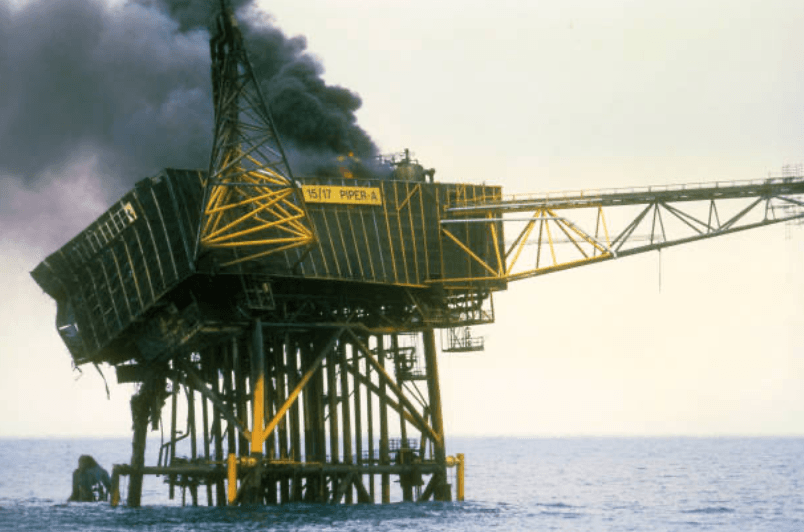loading article..
Date & Place: 6–7 July, 1988, Piper Alpha offshore oil/gas platform, North Sea, UK.
Operator: Occidental Petroleum.
Lives lost: 167 workers died, 61 survived.
Major destruction of platform, enormous fire, collapse of modules.
Huge financial losses, insured loss ~£1.7 billion.


Maintenance work & permit-to-work confusion: A condensate pump (Pump A) was under maintenance. A safety valve (PSV #504) was removed for recertification; upstream of it there was a blind flange (disk cover) that was only hand-tightened.
Day shift issued permits, but the separation of responsibilities/communication between day & night shift was poor. The night shift was not informed properly about the status of Pump A.
Re-energising / restarting a pump that should have remained off: Despite PSV removed and blind flange in place, the standby pump was turned on, thereby bringing pressure back into a system that had an inadequately secured blind flange. Gas condensate leaked.
Leak and ignition:The leak found an ignition source. Causes could include hot work, electrical sparks, hot surfaces, light fittings. The exact ignition source was not conclusively determined.
Explosion, fire spread, failure in safety systems: The first explosion destroyed firewalls between modules, control room destroyed. Control / command structure compromised.
Many safety systems failed: fire pumps were on manual control (and hard to reach), emergency power failed, deluge or water cooling systems did not function properly, etc.
Escalation via pipelines, inability to isolate: Gas / oil pipelines (Tartan, Claymore, etc.) ruptured. Heat from fires caused further pipeline failures. Many connected systems continued delivering hydrocarbon under pressure, which kept feeding the fire. Isolation was incomplete.
Evacuation & rescue failures: Smoke / fire blocked escape routes; lifeboats / helideck access impaired. Many had to jump into sea. Some rescue systems or assembly points were destroyed early in the disaster.
Inquiry & findings: The Cullen Report (Public Inquiry, chaired by Lord Cullen) was published in November 1990. It collected extensive evidence, witness testimony, documents, etc. and made many recommendations.
Main failures identified: poor permit-to-work procedure / handover; lack of communication between shifts; inadequate design, especially placement of modules (gas modules next to the control room without blast protection); failure of safety critical systems to have redundancy; emergency response systems ineffective.
Lives at stake: Human life is the most important. Piper Alpha cost 167 lives. Safety mistakes are often irreversible.
Scale of damage: Loss of equipment, environmental damage, lost production & profits (billions in cost). Safety failures have large financial, legal, reputational consequences.
Regulatory & legal consequences: Post-Piper Alpha, new regulations (in the UK and elsewhere) came in (e.g. Offshore Installations (Safety Case) Regulations 1992). Companies may face litigation, fines, shutdown orders.
Risk to third parties / environment: Offshore disasters impact environment (oil leaks, pollution), maritime traffic, nearby rigs, workers’ families etc.
Moral and ethical obligation: Employers have duty of care. Safety respects human dignity, social responsibility.
The Cullen Report made 106 recommendations, many covering operating procedures, platform design, communications, emergency response.
One core theme: safety management must encompass not just engineering, but organizational culture, human factors, maintenance, communication, procedures.
Another: the regulatory model should be risk-based rather than purely prescriptive; operators must demonstrate to regulators that they understand hazards, have reduced risks as low as reasonably practicable (ALARP).